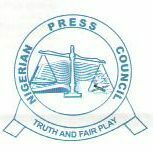FOCUS GROUP DISCUSSION ON THE INCORPORATION OF DEMOCRATIC GOVERNANCE ISSUES IN THE UNESCO MODEL CURRICULUM GUIDELINES FOR IMPROVED JOURNALISM EDUCATION IN NIGERIA HELD ON FEBRUARY 14, 2014 AT CROCODILE HOTEL, KADUNA.
The second edition of the Focus Group Discussion (FGD) on the incorporation of Democratic Governance Issues in the UNESCO Model Curriculum Guidelines for improved Journalism Education in Nigeria was held in Kaduna on Friday, February 14, 2014.
In line with the objective of the inaugural edition of the FGD, the meeting in Kaduna was a gathering of academics, representatives of government agencies and media stakeholders to interface and review the existing Mass Communication curriculum and, where necessary, propose a programme content in democratic governance issues for possible inclusion in the reviewed Mass Communication Curriculum of Nigerian Polytechnics and Monotechnics.
The gathering was made possible through the collaboration of the National Board for Technical Education (NBTE) and the Nigerian Press Council (NPC) with the support of UNDP’s Democratic Governance for Development (DGD) Project.
The Acting Executive Secretary of NPC, Mr. Nnamdi Njemanze, in his welcome address, stated that the aim of the forum was to enable Media Stakeholders synthesize inputs gathered from previous advocacy visits by NPC towards integrating governance issues and social media in Journalism curricula.
In his opening remarks, the Executive Secretary of NBTE, Dr. M. A. Kazaure, represented by Mrs. Jane Otobo, Deputy Director of Management and Social Sciences Division of the Board, welcomed the collaboration with the NPC towards the enhancement of the Mass Communication Curriculum in Nigerian Polytechnics and expressed the hope that the outcome of the FGD would ultimately enrich the Nigerian education system in general and the Mass Communication training and practice in particular.
In all, three papers were presented and discussed as follows:
1. Elements of Chapter 2 of the 1999 Nigerian Constitution: Significance of Section 22 and FOI Act in furtherance of good governance;
2. Keeping alive in Nigeria the ethics of professionalism in political and electioneering reportage for enhancement of true democracy; and
3. Critical elements in the new media as empowerment tools for good governance.
OBSERVATIONS
The FGD noted videlicet:
- The media plays a major role in upholding democratic governance and is specifically empowered by the 1999 Constitution to ensure accountability and transparency in governance.
- The media in Nigeria is under obligation to move beyond their traditional roles of informing, educating and entertaining the citizenry to upholding good governance through deliberate agenda setting and advocacy.
- Communication/Mass Communication professionals should be adequately educated in democratic and governance issues to be able to discharge their constitutional responsibilities effectively.
- Though most of the courses proposed in the presentation have already been captured in the existing curriculum, there was the need to identify areas of knowledge gap to determine the extent to which some of the suggested courses may be incorporated in the existing curriculum.
RECOMMENDATIONS
The FGD proposes as follows:
- That the NBTE should wake up fully to its responsibility with regard to the implementation of the outcomes of curriculum review workshops by producing an updated Mass Communication curriculum in tune with current needs and realities;
- That Media, Democracy and Governance’’ should be included as a compulsory course in the HND curriculum of all Mass Communication training schools;
- That since many of the suggested new courses for inclusion in the curriculum are already in the existing curriculum, there is a need for harmonization;
- That a train-the-trainers scheme be established whereby Mass Communication teachers are made to acquire both practical and academic experiences to improve their capacity;
- That the Nigeria Union of Journalists should enforce the registration of professional journalists;
- That the FOI Act be incorporated in existing Mass Media Law syllabus;
- That regular review of the Mass Communication curriculum be carried out every five years, in order for lecturers and students to keep abreast of new and emerging developments;
- That Diversity and Conflict Reporting be taught as a compulsory course in all polytechnics and monotechnics;
- That the New Media is essential in the entrenchment of good governance in the country. Therefore, there is the need for it to be incorporated into the curriculum of journalism training in the polytechnics and monotechnics; and
- That in incorporating New Media into the curriculum of polytechnics and monotechnics, consideration be given to upgrading of facilities.
JANE OTOBO Prof. BAYO OLOYEDE
NBTE MODERATOR
NNAMDI NJEMANZE
NPC
